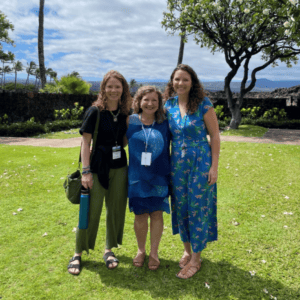Dr. Elizabeth Madden, an assistant professor in the School of Communication Science and Disorders, was awarded the Tavistock Trust for Aphasia 2024 Distinguished Scholars Award.
This award recognizes research excellence related to quality-of-life issues in aphasia. It is given, in part, to recognize scholarly excellence in research and publications dedicated to improving life with aphasia and to foster and encourage pioneering research that aims to make a difference in the everyday lives of people living with aphasia, their families, and caregivers.

“This award will help me connect with others who are working to improve language abilities and life participation for stroke survivors with aphasia and help open doors to new collaborations and opportunities for me, students, and those who participate in my research,” said Madden.
Aphasia, an acquired language processing disorder, affects a minimum of two million individuals within the United States. Madden centers her research on the rehabilitation of aphasia and addresses how a stroke can impact a person’s language and communication abilities as well as how a stroke can impact friendship and social networks for stroke survivors and their care partners.
“I examine how treatments that re-train phonology (sounds) can help improve talking, reading, and writing after stroke,” said Madden. “I also engage in qualitative research and speak with stroke survivors and their care partners to understand their lived experiences and identify their interests and needs that we aim to help address through the development of new treatments and resources.”

Nominated by two colleagues for this award, Madden’s commitment to the effects and rehabilitation of aphasia have not gone unnoticed. One of four winners this year, she is focused on understanding the relationship between spoken and written language abilities in individuals with aphasia and developing behavioral treatments to address reading and writing disorders post-stroke. “I am very grateful to receive this award and motivated to continue research efforts that aim to improve life participation and quality of life for individuals with aphasia and their families,” said Madden.

